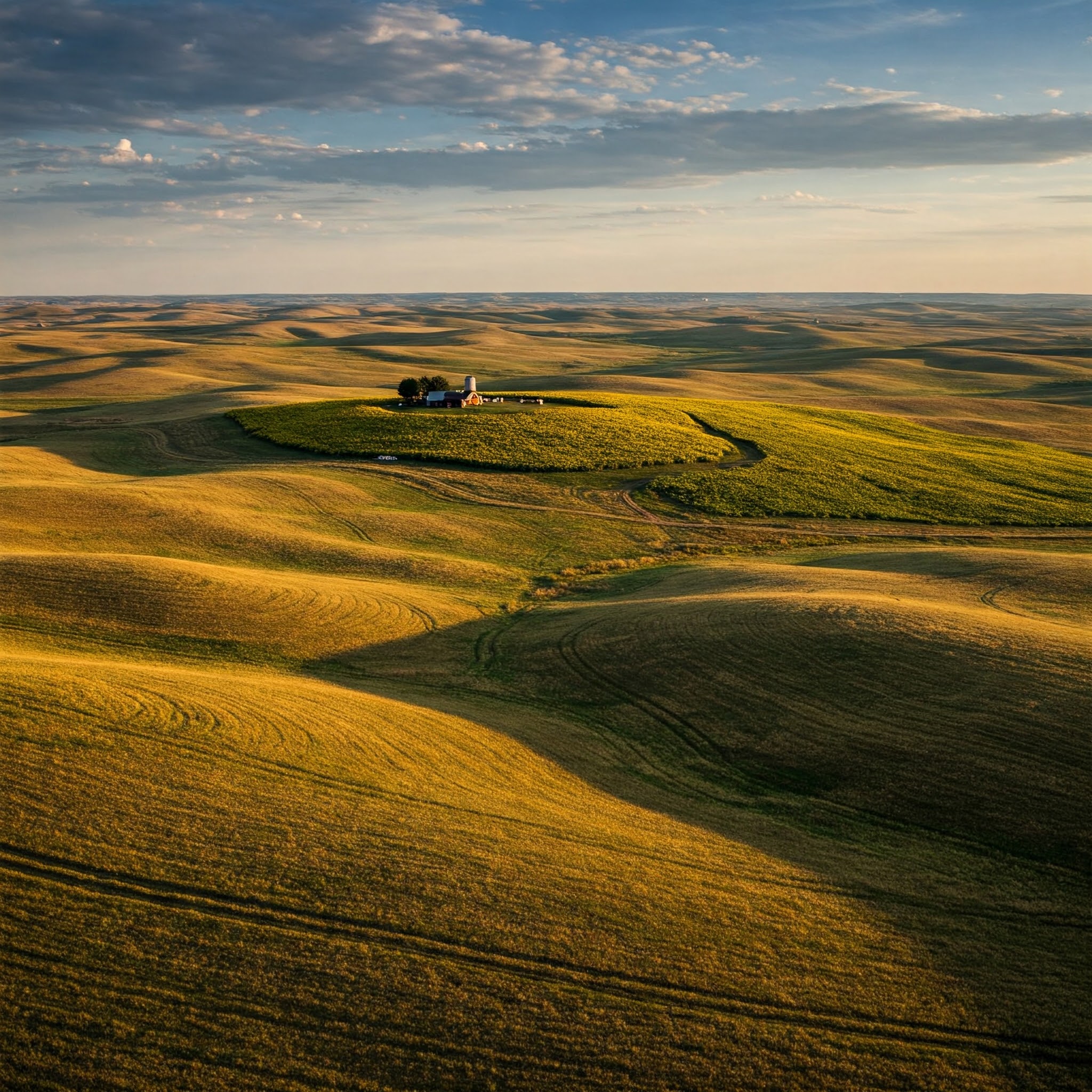Plain
Definition
Plain can function as an adjective, noun, or adverb. As an adjective, it describes something simple, unadorned, or clear. As a noun, it refers to a large area of flat land. As an adverb (archaic), it means clearly or unmistakably.
Parts of Speech
- Adjective
- Noun
- Adverb (archaic)
Pronunciation
American English
- IPA Pronunciation: /pleɪn/
- Respelling: PLAYN
British English
- IPA Pronunciation: /pleɪn/
- Respelling: PLAYN
Etymology
The word "plain" originates from Latin "planus," meaning "flat" or "even." It entered Middle English through Old French "plain," maintaining its meaning of simplicity and flatness.
Derivatives
- Plainness (noun)
- Plainspoken (adjective)
- Plains (noun)
- Planar (adjective)
- Plainless (adjective, rare)
Synonyms
- Simple
- Clear
- Flat
Antonyms
- Complex
- Decorated
- Hilly
Usage
The term "plain" is widely used to describe simplicity, clarity, or flat landscapes. For example, "The plain dress was elegant in its simplicity" or "They traveled across the vast plain."
Related Terms
- Simple: Not elaborate or complicated.
- Prairie: A type of plain found in North America.
- Clarity: The quality of being clear and understandable.
Detailed Definitions
Adjective
- Simple or unadorned: Refers to something that lacks decoration or complexity.
- Example: "She wore a plain white shirt."
- Clear or obvious: Refers to something easily understood or recognized.
- Example: "The instructions were written in plain language."
Noun
- A large area of flat land: Refers to a geographic feature characterized by a lack of significant elevation changes.
- Example: "The Great Plains stretch across central North America."
Adverb (archaic)
- Clearly or unmistakably: Refers to stating something in a straightforward manner.
- Example: "He spoke plain of his intentions."
plain



🇨🇳 Mandarin
- 平原 (píngyuán) - plain (flat land)
- IPA: /pʰiŋ˥˧ ɥɛn˧˥/
- Respelling: ping-ywen
- 简单 (jiǎndān) - plain (clear)
- IPA: /tɕjɛn˨˩˦ tan˥˥/
- Respelling: jyen-dan
🇮🇳 Hindi
- मैदान (maidān) - plain (flat land)
- IPA: /məiˈd̪aːn/
- Respelling: my-daan
- स्पष्ट (spaṣṭ) - plain (clear)
- IPA: /spəʂʈ/
- Respelling: spusht
🇪🇸 Spanish
- Llano - plain (flat land)
- IPA: /'ʝano/
- Respelling: ya-no
- Claro - plain (clear)
- IPA: /'klaɾo/
- Respelling: kla-ro
🇫🇷 French
- Plaine - plain (flat land)
- IPA: /plɛn/
- Respelling: plen
- Clair - plain (clear)
- IPA: /klɛʁ/
- Respelling: kler
🇸🇦 Modern Standard Arabic
- سهل (sahl) - plain (flat land)
- IPA: /sæhl/
- Respelling: sahl
- واضح (wāḍiḥ) - plain (clear)
- IPA: /wɑːdʕiħ/
- Respelling: wa-dih
🇧🇩 Bengali
- সমতল (samatāla) - plain (flat land)
- IPA: /ʃɔmtal/
- Respelling: sho-mo-tal
- স্পষ্ট (spaṣṭa) - plain (clear)
- IPA: /ʃpoʃto/
- Respelling: shposh-to
🇷🇺 Russian
- Равнина (ravnina) - plain (flat land)
- IPA: /rɐˈvnʲinə/
- Respelling: ra-vnee-na
- Ясный (yasnyy) - plain (clear)
- IPA: /ˈjasnɨj/
- Respelling: yas-nyi
🇵🇹 Portuguese
- Planície - plain (flat land)
- IPA: /plɐˈnisjɨ/
- Respelling: pla-ni-see
- Claro - plain (clear)
- IPA: /ˈklaɾu/
- Respelling: kla-ro
🇮🇩 Indonesian
- Dataran - plain (flat land)
- IPA: /dataˈran/
- Respelling: da-ta-ran
- Jelas - plain (clear)
- IPA: /ˈjəlas/
- Respelling: ye-las
🇩🇪 German
- Ebene - plain (flat land)
- IPA: /ˈeːbənə/
- Respelling: ey-be-ne
- Klar - plain (clear)
- IPA: /klaːr/
- Respelling: klar
🇯🇵 Japanese
- 平原 (hei-gen) - plain (flat land)
- IPA: /heːɡeɴ/
- Respelling: hey-gen
- 明白 (meihaku) - plain (clear)
- IPA: /meːhakɯː/
- Respelling: mey-ha-koo
🇻🇳 Vietnamese
- Đồng bằng - plain (flat land)
- IPA: /ɗoŋ˧ˀ˦ bəŋ˧ˀ˦/
- Respelling: yong bang
- Rõ ràng - plain (clear)
- IPA: /ɹəː˧ˀ˦ ɹaŋ˧ˀ˦/
- Respelling: roh rang
🇰🇷 Korean
- 평원 (pyeongwon) - plain (flat land)
- IPA: /phjʌŋwʌn/
- Respelling: pyuhng-wuhn
- 명확한 (myeonghwakhan) - plain (clear)
- IPA: /mjʌŋʍʌk̚hɐn/
- Respelling: myuhng-hwak-han
🇹🇷 Turkish
- Ova - plain (flat land)
- IPA: /ova/
- Respelling: o-va
- Açık - plain (clear)
- IPA: /aːˈd͡ʒɯk/
- Respelling: a-juhk
🇵🇰 Urdu
- میدان (maidān) - plain (flat land)
- IPA: /mɛːd̪aːn/
- Respelling: may-daan
- سادہ (sādhā) - plain (clear)
- IPA: /saːd̪ɦaː/
- Respelling: saa-dhaa





